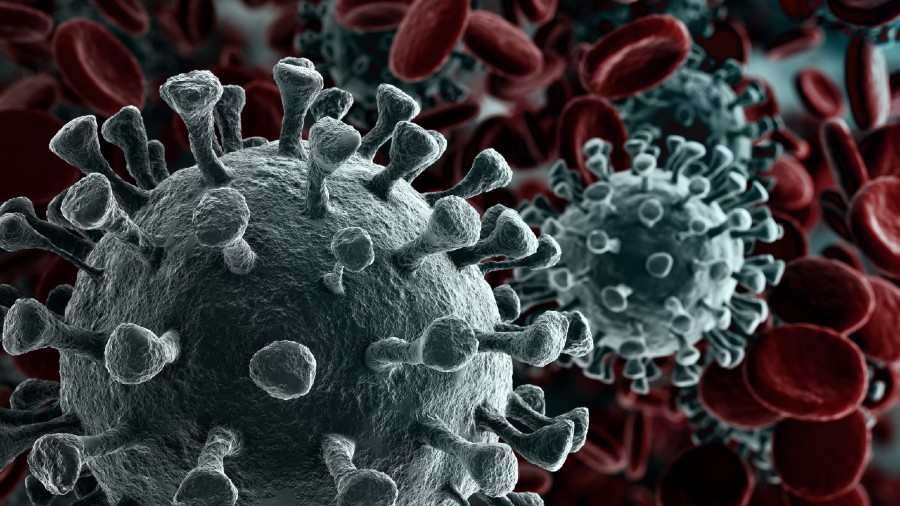
ICMR survey finds 21.5% Indians Covid affected -
The overall prevalence level implies that actual number of infections is over 292 million, or 27 times higher than the 10.7 million lab-confirmed cases

The survey has found an overall seroprevalence of 21.5 per cent with average values of 31.7 per cent in urban slums, 26 per cent in urban non-slum areas and 19 per cent in rural districts, Balram Bhargava, director-general of the Indian Council of Medical Research, said.
The overall prevalence level implies that India’s actual number of infections is over 292 million, or 27 times higher than the 10.7 million lab-confirmed cases.
The coronavirus has also infected one in four (25.3 per cent) children aged between 10 and 17 years and one in four (25.7 per cent) healthcare workers sampled across 70 districts, Bhargava said at a media briefing hosted by the Union health ministry.
“A large proportion (of the population) still remains vulnerable — prevention is the key, vaccines are necessary, and there can be no complacency,” Bhargava said, asserting that people need to continue to adopt precautions such as face masks, physical distancing, hand hygiene and avoiding crowds.
The survey by the ICMR looked for antibodies — signatures of an immune response — against the coronavirus in 28,589 people and 7,171 healthcare workers from the same 70 districts across 21 states where it had conducted two earlier surveys.
The earlier surveys had found prevalence of 0.73 per cent in May and 7 per cent in August.
Health researchers say the average figure for India masks differences in the epidemic’s stages within states or cities but bolsters support for the idea that the country is moving towards herd immunity threshold, a point at which such a large fraction of people are infected that the epidemic stops.
Theoretical calculations suggest that about 60 per cent of a population has to be infected to reach the herd immunity threshold. But multiple experts have argued that the threshold could be attained at even smaller fractions, depending on population density differences such as between rural and urban areas.
“Some places are nearly there — how else do we explain the dramatic drop in new cases in areas or states where we had rampaging epidemics a few months ago?” said Jayaprakash Muliyil, a former professor of community medicine at the Christian Medical College, Vellore.
India’s nationwide daily new Covid-19 cases have declined from a peak of over 92,000 in mid-September to around 12,000 daily new cases over the past week. Delhi’s counts have dropped from over 7,400 daily new cases in mid-November to 165 over the past week.
“In places like Delhi, only herd immunity can explain what we’re seeing,” Muliyil said.
Health officials have asserted that Covid-19 vaccines are necessary to bridge the gap between the observed infection prevalence levels and what would be required to reach herd immunity thresholds and to protect individuals.
The third survey had examined blood samples to look for antibodies against two coronavirus proteins — a spike protein and a nucleocapsid protein. The overall prevalence — 21.4 per cent — Bhargava presented is based on spike protein antibodies.
Community health researchers said the survey would have yielded some samples positive for spike antibodies, some samples positive for nucleocapsid antibodies, and some samples positive for both sets of antibodies. The earlier surveys had looked for only the nucleocapsid antibodies.
“We know from observations that nucleocapsid antibodies disappear faster than spike protein antibodies. And spike protein antibodies are more important, relevant to protecting people from the infection,” a researcher said. “But the true prevalence would be estimated by taking into account samples positive either for spike or for nucleocapsid antibodies.”
Senior ICMR officials did not respond to a query from The Telegraph on why nucleocapsid data were not presented in the briefing.


0 Response to "ICMR survey finds 21.5% Indians Covid affected - "
Post a Comment
Disclaimer Note:
The views expressed in the articles published here are solely those of the author and do not necessarily reflect the official policy, position, or perspective of Kalimpong News or KalimNews. Kalimpong News and KalimNews disclaim all liability for the published or posted articles, news, and information and assume no responsibility for the accuracy or validity of the content.
Kalimpong News is a non-profit online news platform managed by KalimNews and operated under the Kalimpong Press Club.
Comment Policy:
We encourage respectful and constructive discussions. Please ensure decency while commenting and register with your email ID to participate.
Note: only a member of this blog may post a comment.